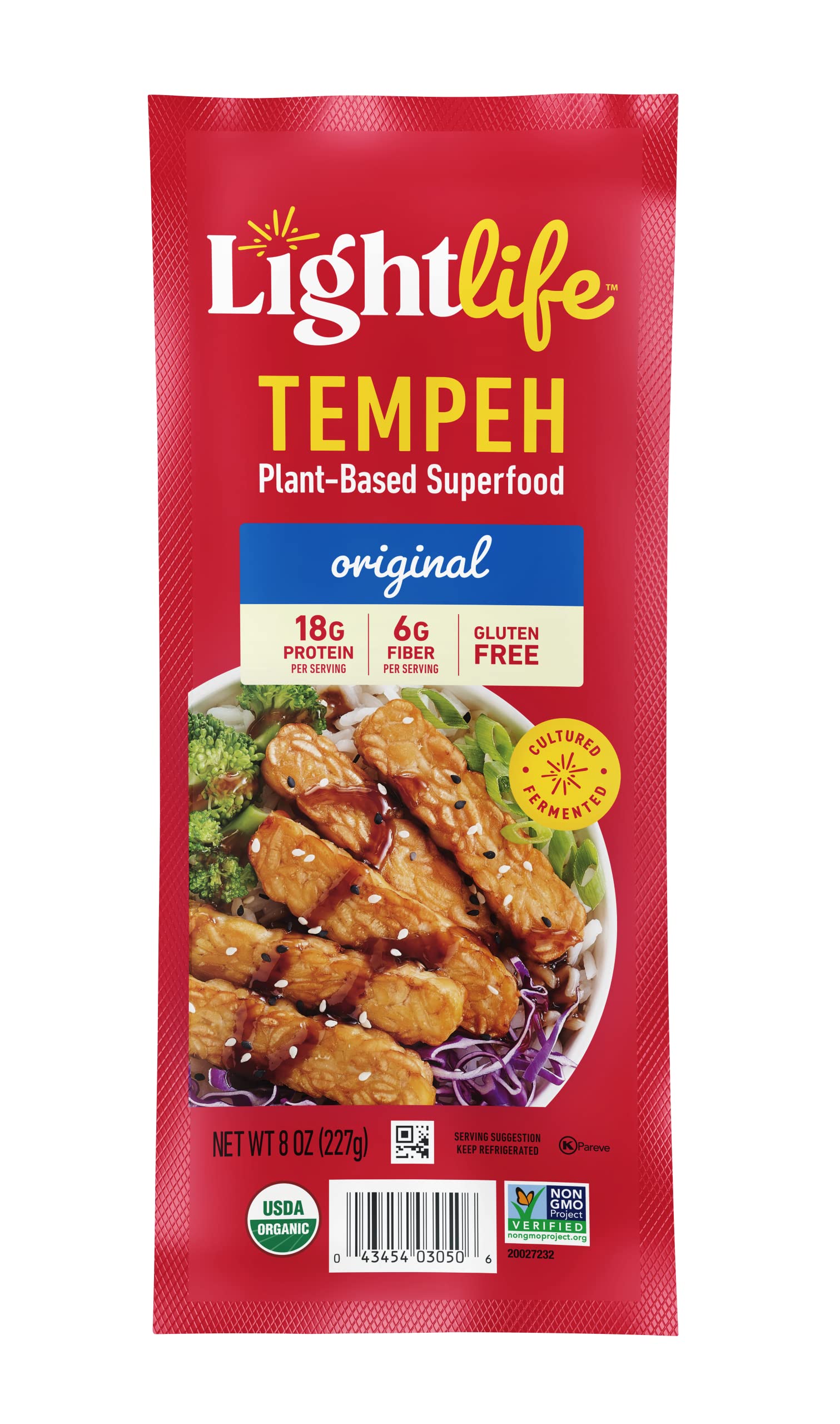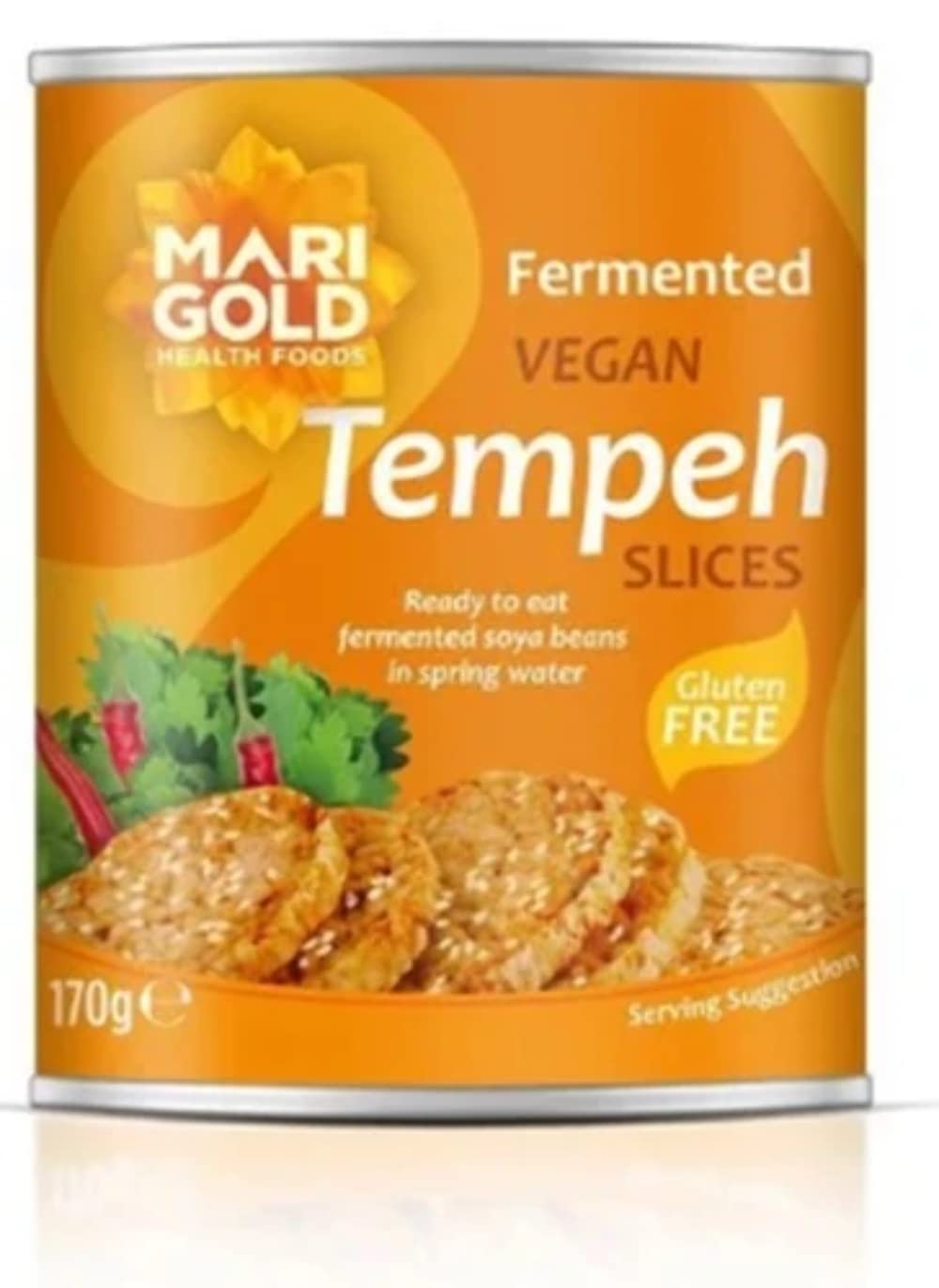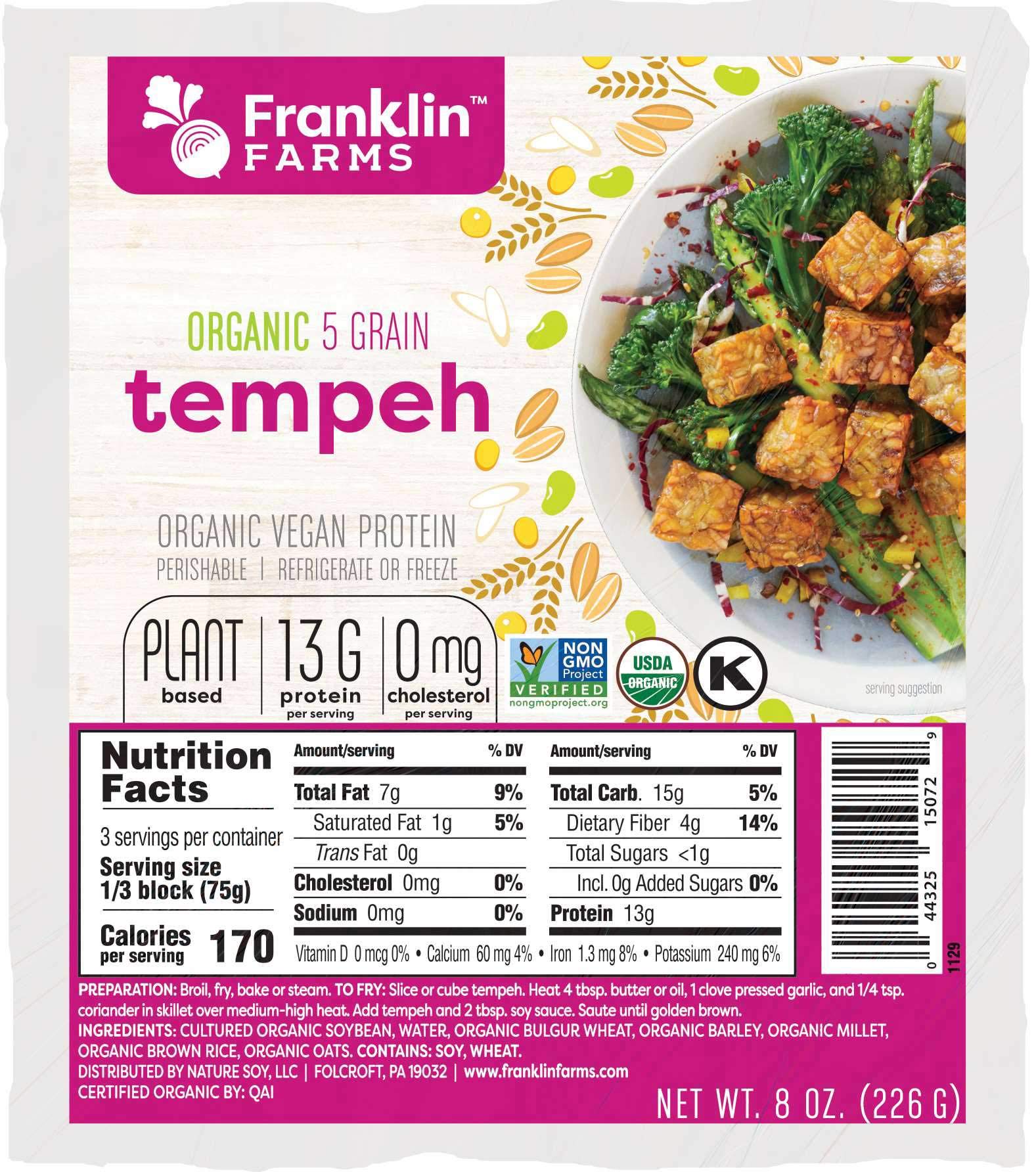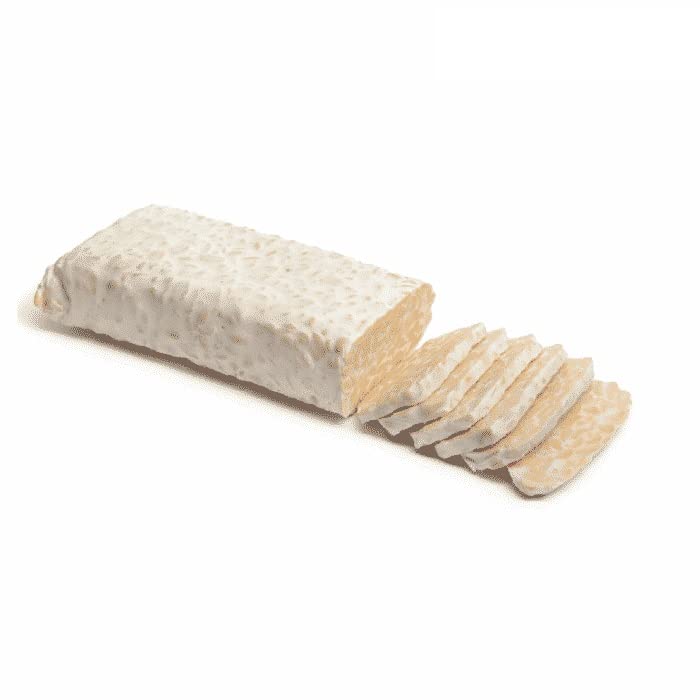Tempeh has rapidly become one of the stars of plant-based cuisine, renowned for its nutty flavor, hearty texture, and impressive nutritional profile. It’s a fantastic source of protein for vegetarians and vegans — and even meat-eaters might be swayed by its delicious versatility.
Tempeh is a traditional Indonesian product made from fermented soybeans and has been a staple protein source in the region for centuries. Unlike other soy products like tofu, tempeh has a firm texture and an earthy taste reminiscent of mushrooms, enhanced when marinated or cooked.
In my experience trying out plant-based alternatives, I’ve found that the best tempeh not only has to have great flavor but also the right texture. Given tempeh’s absorbent nature, it’s a fabulous canvas for recipes from your favorite visual vegan cookbooks.
I always consider a few crucial aspects when considering which tempeh to buy. Origin is significant; traditionally-made tempeh will most likely provide an authentic taste. I also watch the ingredient list for non-GMO, organic soybeans to ensure I’m getting the best quality.
I spent hours in my kitchen testing various tempeh brands and cooking methods to discover which could be best crowned. Let’s dive in to see which brands made the cut and why they deserve a place at my table.
Best Tempeh Choices to Elevate Your Vegan Cuisine
Tempeh has been a game-changer for my vegan journey, offering a source of plant-based protein and a versatile base for many delicious dishes. This nutty, firm, and underrated soy product has been stepping up my kitchen game.
Ready to transform your plant-powered meals? Check out these top-notch tempeh options that’ll make you wonder why you haven’t tried them sooner!
Lightlife Tempeh
I just had Lightlife Original Organic Tempeh, and it’s a must-try for anyone aiming for a healthier, plant-based diet.
Pros
- It packs a protein punch with 18g per serving.
- Its subtle taste makes it perfect for absorbing all sorts of marinades and sauces.
- Prepping this tempeh is a breeze, effortlessly fitting into busy routines.
Cons
- The flavor might be too bland for some without proper seasoning.
- Texture may be unfamiliar to those new to plant-based proteins.
- Its appearance with natural fermentation spots might initially be off-putting.
Having recently added Lightlife Tempeh to my plant-based repertoire, I was impressed with how easily it was incorporated into my meals. The texture was satisfying – firm yet chewable – and held its structure even when generously marinated and cooked thoroughly.
I appreciate how it’s concocted from a short list of ingredients, reassuring me that I’m keeping my diet clean and straightforward. This tempeh’s ability to morph flavor-wise depending on my culinary whims is genuinely convenient.
It never fails to make my plant-based diet more fulfilling and protein-rich, a testament to why it’s been a staple in many vegan kitchens for over 40 years.
Rhapsody Organic Tempeh
I just tried this tempeh, and I’m pretty impressed; it’s a protein powerhouse and kind to my tummy.
Pros
- Packed with high-quality protein and fiber
- Fermented, making it gentle on the digestive system
- Large 2-pound block, perfect for meal prep
Cons
- The price may be steeper compared to smaller packages
- Requires refrigeration, a consideration for shipping
- Packaging might lack proper insulation
Just had Rhapsody’s 2lb Organic Tempeh for lunch, which was such a satisfying experience. The fact that it’s organic and comes in a generous size is a huge plus.
Having become more conscious of what I eat and the effects on my body, I’m relieved that this tempeh is easier on my digestive system than other legumes. It’s pretty clear that their fermentation process makes a big difference, and it’s nice to eat a soy product that doesn’t make me feel bloated.
Preparing the tempeh was a breeze, and I love its versatility. As someone deeply invested in well-being through diet, it’s important to me that my food is not just good but also nutritious. Rhapsody’s tempeh is a win-win in that aspect. I’ll be adding this to my regular shopping list for sure.
Marigold Tempeh
I just whipped up a storm in my kitchen with Marigold’s Vegan Tempeh and, goodness, you should give it a try for its natural taste and versatility.
Pros
- Packed with protein and easy to digest
- Versatile for cooking—fantastic in stews and soups
- Trustworthy brand ensuring non-GMO and gluten-free options
Cons
- Price point might be steep per serving compared to non-vegan meals
- Limited servings per can which may not suffice for larger meals
- May need added seasoning for depth of flavor
I found Marigold’s Tempeh a nutrient-rich powerhouse, ideal for keeping my vegan diet balanced and interesting. The fact that it’s ready-to-eat slashes my meal prep time, getting me from zero to nourished in minutes.
Did I mention it’s versatile? Whether I’m lazily throwing it into a soup pot or carefully crafting a gourmet meal, this tempeh stands up to the task.
Yet, I noticed a couple of caveats: the price can nibble at your wallet if you aim for a budget-friendly vegan lifestyle, and you might want to have some spices on hand to jazz things up.
Franklin Tempeh
Having savored the chewy goodness of Franklin Farms Organic Five Grain Tempeh, I’m convinced it’s a staple for anyone’s plant-based diet.
Pros
- Packed with 13 grams of protein per serving
- Versatile in recipes from sandwiches to stir-fries
- Certified Kosher and wholly Vegan
Cons
- Limited availability in some regions
- Texture might be an acquired taste for newbies
- Only 12 per case may not suffice for heavy consumers
I just tossed some of this tempeh into a skillet with my favorite mix of veggies, and the way it soaked up the flavors left me wanting more. Its hearty grain composition lends a satisfying chewiness, which made my stir-fry stand out.
The beauty of this product lies in its adaptability. The grains add a depth to the texture that keeps every meal enjoyable.
Whether new to plant-based eating or a seasoned vegan, you’ll appreciate that this tempeh is a protein powerhouse. It has become my go-to for a quick and filling meal, and knowing it’s made with organic and wholesome grains makes me feel great about what I’m eating.
Tempe Organic Tempeh
If you’re looking for a plant-based protein that’s easy to work with and supports a vegan lifestyle, this tempeh is a real contender.
Pros
- Rich in plant-based protein and organic ingredients
- Simplifies vegan cooking with its easy-to-digest texture
- Handmade, ensuring a touch of artisan quality
Cons
- Packaging lacks durability, causing potential safety concerns
- Temperature control during shipping is often insufficient
- Firmness is inconsistent compared to other tempeh brands
As a vegan, I’m always searching for high-quality protein sources, and Tempe’s Organic Tempeh caught my eye. It’s bursting with organic goodness and perfectly fits my ethical eating philosophy.
While I appreciated the product’s organic label, I wasn’t thrilled with the ziplock bag packaging. A more sustainable and protective option would instill greater confidence, particularly online ordering.
Shipping could use tweaking – my batch arrived a tad warm, suggesting that the ice packs didn’t quite hold up. It’s certainly not the pinnacle of tempeh products, but for those dedicated to organic, vegan eating, it’s a solid choice to consider.
READ NEXT: Best Balsamic Vinegar Brands for Your Pantry in 2024
Buying Guide
Freshness
I always check for freshness when picking tempeh. You want tempeh that looks firm and has a uniform white color. Any discoloration or a strong, off-putting smell might suggest it’s past its prime.
Ingredients
Here’s a simple table to decipher key ingredients you might find on the label:
| Ingredient | Description |
|---|---|
| Soybeans | The base; look for non-GMO and organic for the cleanest option. |
| Vinegar | Sometimes used in the fermentation process. |
| Rhizopus Culture | This is the mold that ferments the soybeans, totally natural and essential. |
Make sure to avoid additional unnecessary ingredients or preservatives.
Texture
I prefer a firm and dense texture, as it indicates good fermentation and will hold up better in cooking. If it crumbles too quickly in the package, it might not fare well in your recipes.
Organic and Non-GMO
Tempeh originated as a natural, plant-based protein source. I embrace this tradition by choosing organic and non-GMO tempeh to ensure I get the highest quality product, free from synthetic additives and genetically modified organisms.
Packaging
Ensure that the packaging is sealed properly. Any breach could affect the tempeh’s quality, and by choosing well-sealed packaging, I know I’m getting a product that hasn’t been tampered with.
Remember, these tips are about enjoying tempeh in its purest form and getting the best plant-based goodness out of every bite.







